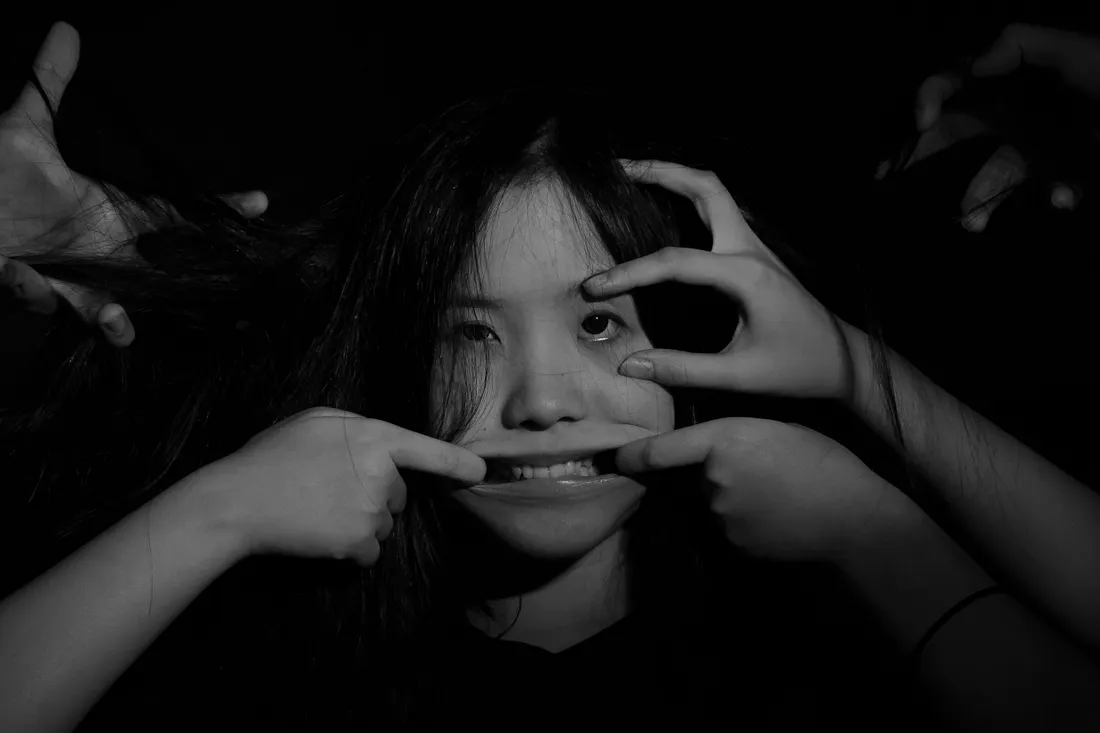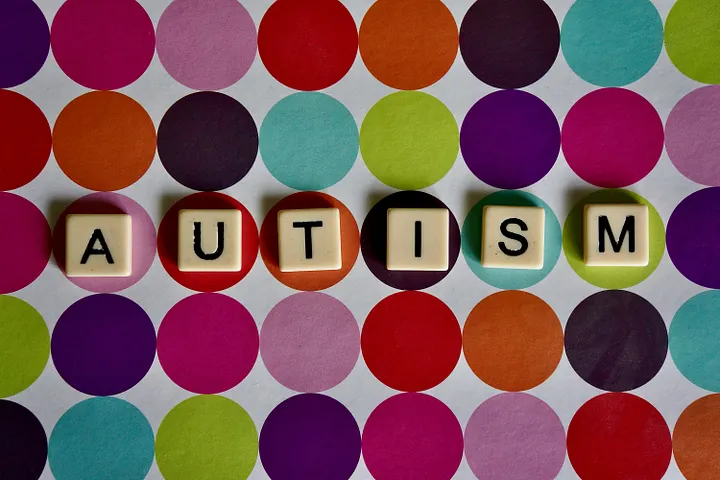When people hear the phrase “high-functioning autism,” they often picture someone who has a few quirks but is otherwise living a “normal” life. It sounds flattering, doesn’t it? It suggests capability, adaptability, and resilience. But beneath that polished exterior lies a complex reality: the label of high-functioning can become a double-edged sword, used not to empower autistic individuals but to dismiss, minimize, or even erase their struggles.
The term “high-functioning” is not even an official medical diagnosis — it’s a shorthand, a convenient label. It categorizes autistic people based on how “normal” they appear to the outside world. If you can talk, study, work, or socialize just enough to pass, society tends to believe you are fine. But that’s the problem: passing becomes a burden, and the hidden toll is rarely acknowledged.
This essay explores the dark side of being considered “high-functioning,” revealing how it often invalidates lived experiences, masks serious challenges, and isolates autistic individuals in ways that even psychiatry sometimes overlooks.
1. The trap of appearing capable
For many autistic people, being labeled high-functioning means that their difficulties are constantly underestimated. If you can hold a conversation, your social exhaustion is dismissed. If you hold a job, your sensory overload is trivialized. If you graduate from school, people assume you never needed support.
It creates a paradox: the more you achieve, the less people believe you deserve accommodations. Society punishes autistic people for succeeding because their success erases their legitimacy as autistic. “If you can do this, then surely you don’t need help with that.”
This is one of the cruelest traps of all. Struggling in silence becomes the norm, because showing competence means losing sympathy.
2. Masking: survival at a high cost
Behind the façade of high-functioning autism often lies a lifetime of masking. Masking means consciously or unconsciously imitating neurotypical behavior: forcing eye contact, copying speech patterns, rehearsing jokes, suppressing stims, or mimicking social scripts.
Masking can make an autistic person look “fine” in the moment, but the hidden cost is enormous. Studies and firsthand accounts reveal that long-term masking leads to burnout, depression, identity loss, and even suicidal ideation. It’s like wearing a costume so tight that it leaves bruises no one else can see.
Ironically, the better someone masks, the more likely others are to tell them, “You don’t seem autistic.” For many, this sentence doesn’t feel like a compliment; it feels like erasure. It invalidates their identity and their struggles. It suggests their pain is invisible — and therefore irrelevant.
3. The erasure of daily struggles
The label high-functioning often implies a “mild” form of autism. But what does mild actually mean? Does it mean sensory overload feels mild? Does it mean the anxiety before every social interaction feels mild? Does it mean the exhaustion after a day of masking is mild?
What’s considered mild is simply what others don’t have to see. Because struggles are internal — meltdowns at home, shutdowns after work, panic spirals when alone — outsiders conclude that life must be easy. Psychiatric systems, too, are guilty of this. If someone maintains eye contact and answers questions in therapy, a clinician may assume their autism is “less severe.” But the truth is: suffering is not lessened just because it is hidden.
4. The weaponization of “functioning labels”
One of the darkest aspects of the “high-functioning” label is how it gets weaponized against autistic individuals.
- In education: Students are denied accommodations because teachers assume they don’t need them. “You’re smart, so you’ll be fine.”
- In workplaces: Employees are denied flexibility or support because their autism isn’t considered disabling “enough.”
- In healthcare: Professionals may overlook depression, anxiety, or sensory issues because “you’re coping so well.”
- In relationships: Friends and family may minimize distress. “If you were really autistic, you wouldn’t be able to do X.”
This weaponization silences autistic voices. It makes people feel they must either collapse publicly to be believed, or keep functioning silently until burnout destroys them.
5. The illusion of independence
Society idolizes independence, and being high-functioning is often equated with self-sufficiency. But independence is rarely absolute. Many autistic people who appear independent are actually balancing on fragile routines, strict coping mechanisms, and invisible support systems.
Take away one small part of that system — a stable schedule, a safe sensory environment, a trusted person — and independence collapses. Yet when autistic people express their needs, they risk being told, “But you’re high-functioning, you don’t need that.”
The illusion of independence is dangerous. It pushes autistic individuals to deny themselves support until crisis forces them to break.
6. Burnout: the hidden epidemic
Autistic burnout is a term increasingly recognized within the community but still poorly understood by professionals. It refers to the physical, emotional, and cognitive exhaustion caused by prolonged stress, masking, and lack of accommodations.
For so-called “high-functioning” autistics, burnout often hits hardest. Why? Because they are expected to do more, achieve more, and need less help. The pressure to perform never ends, and when burnout arrives, it can look like sudden collapse — losing the ability to work, study, or even communicate effectively.
And yet, because they were labeled high-functioning, their burnout is often dismissed as laziness, depression, or failure, rather than what it truly is: the inevitable cost of being forced to perform neurotypicality for too long.
7. How “praise” becomes invalidation
One of the strangest contradictions of being labeled high-functioning is that the compliments are often backhanded.
- “You’re so articulate — I’d never guess you’re autistic.”
- “You’re doing great, way better than others on the spectrum.”
- “You’re too smart to have autism.”
What sounds like praise actually communicates something hurtful: that autism is inherently negative, and being autistic is only acceptable if you can hide it. It creates a toxic hierarchy where autistic people are valued only for their ability to look less autistic.
This invalidation leads to profound identity struggles. Instead of being accepted as they are, autistic individuals are rewarded for disappearing.
8. The silent crisis in mental health
Research shows that autistic adults, regardless of functioning labels, are at higher risk of depression, anxiety, and suicidal thoughts. But those labeled high-functioning are often overlooked in mental health care. Clinicians may assume that if someone can talk fluently or hold a job, they must not be struggling severely.
This oversight can be deadly. Many autistic people who die by suicide were considered high-functioning. Their outward competence masked their inner despair. Their silent cries for help were ignored because their autism was seen as “mild.”
9. The privilege and the curse
It’s important to acknowledge that being able to function in certain areas does bring privilege. Some autistic people can live independently, hold jobs, and navigate systems in ways that others cannot. But privilege does not erase pain. Privilege does not erase the need for accommodations. Privilege does not erase the right to be understood.
The curse is that this privilege comes at a price: invisibility. High-functioning autistic people are often too “capable” to receive help, but too autistic to thrive without it. They exist in a limbo where neither community fully accepts them.
10. Rethinking the language
The autism community has long debated the usefulness of functioning labels. Many prefer to describe support needs instead: low, medium, or high support required in different areas of life. This approach recognizes that functioning is not a single, stable trait. Someone might excel at academics but need high support in social situations. Someone might appear independent but collapse at home every night.
By moving away from the simplistic high vs. low dichotomy, we can start honoring the complexity of autistic lives instead of flattening them into stereotypes.
11. The way forward: listening to autistic voices
The dark side of high-functioning autism will remain hidden as long as non-autistic people control the narrative. Too often, autistic experiences are filtered through psychiatrists, educators, or family members. While these perspectives matter, they are incomplete.
Real change begins when autistic people themselves are trusted as the experts of their own lives. When they say masking is exhausting, believe them. When they say burnout is real, believe them. When they say “high-functioning” hurts, believe them.
Listening is the first step to dismantling harmful labels and replacing them with empathy, nuance, and respect.
12. Conclusion: the cost of invisibility
Being labeled high-functioning may sound like a compliment, but for many autistic people, it feels like a sentence. It traps them in invisibility, strips away legitimacy, and leaves them unsupported.
Autism is not a performance of normality. It is a neurotype, a way of being. Every autistic person, no matter how capable they appear, deserves understanding, accommodations, and respect.
The dark side of high-functioning autism is that its victims are often those who seem to need the least help — and therefore get none. But silence has a cost. The more society refuses to see the hidden struggles, the more autistic lives are lost in plain sight.
Author’s Note
I’m a Brazilian writer with a dream — to make a living through words. As an autistic person, writing has always been my safe space, my way of connecting with the world and making sense of it.
Medium does not allow authors from Brazil to join its Partner Program, which means I don’t earn anything from the time and care I put into these texts — unless readers like you choose to support me directly.
If you enjoy my writing and feel it resonates with you, I humbly invite you to consider leaving a small tip. It’s not about paying for the text itself — it’s about encouragement, about saying “keep going, your words matter.”
Every contribution, even $1, helps me stay motivated and continue writing. My bigger dream is to live from my words and, one day, replace my very old laptop with a new one that will allow me to keep creating with more comfort and consistency.
🧡 You can support me through my Linktree, where I offer multiple ways to donate:
Just look for the donation button (a little hand with a heart 🤲💙) next to the “Follow” button — or go directly to:
👉 ko-fi.com/higgoraraujo
You can also find the same link in my bio, through my Linktree, with all available support options.
Your support isn’t just financial — it’s a way of telling me “don’t stop, keep writing.”
And that, more than anything, keeps me moving forward.
Thank you, from the bottom of my heart.




